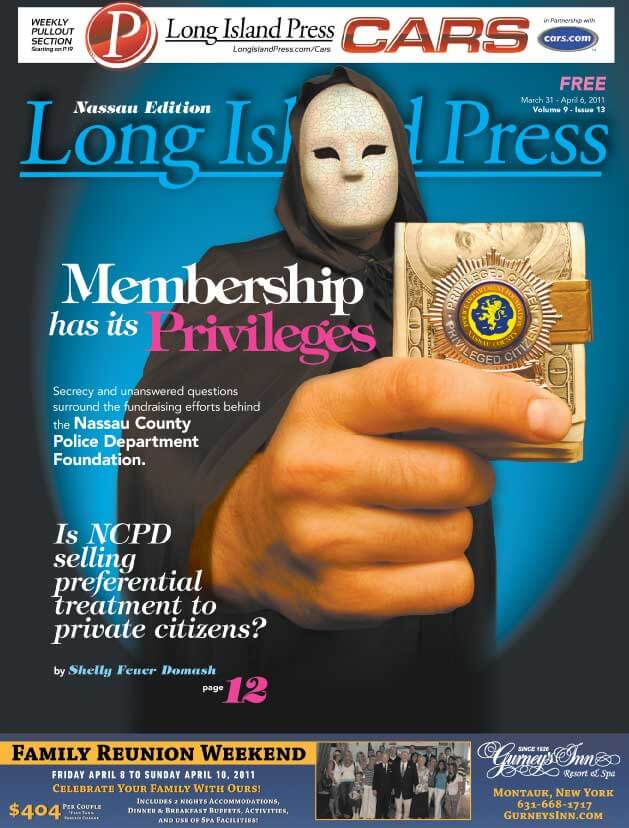Let There Be Light
The lack of transparency demonstrated by Nassau’s outgoing Commissioner Mulvey and other officials at the NCPD throughout the reporting of this story has raised a slate of unanswered questions regarding the Nassau County Police Department Foundation, its directors, members, donors, relationship with the department and the ethics of both entities.
Why would a police department go to such lengths to protect the identities of the foundation’s board members and contributors if everything is above board? Why would a police department selectively follow Freedom of Information law to ensure the anonymity of foundation supporters? Who has contributed and how much? What ever happened to all that asset forfeiture money? Where did it go? What was it used for? Why not show the public foundation members’ police identification cards and shields if there’s nothing out of the ordinary with them? If Foundation members are doing such a service for the public good, why not issue a press release about their special status instead of an internal police memo?
After all, as Mulvey tells potential donors, it’s a “public/private partnership,” right? So what’s the big secret?
Approximately 125 members of the Nassau County Police Department retired in 2010. And while many took advantage of a countywide buyout offered for a short time by Mangano, others say their disgust over what has been taking place within the department also played a decisive role in their decision. They wonder where the cracks now threatening the department’s core values—granting preferential treatment to private citizens due to the girth of their wallets—will ultimately lead.
“Now that our integrity has been compromised by our leadership, we feel that the badge has been tarnished,” says a longtime veteran of the department with more than 30 years of service.
“When people give money they might have the right intent, but human nature says a percentage of people are going to want things back,” says another high-ranking officer who recently left the department because of the changes, among other reasons.
Lack of transparency about just who those private funders are, as well as any perks bestowed upon them for those contributions, add to negative perceptions.
“Stonewalling is never good,” says John Jay’s King. “The public trust in a police department and its leadership and the IRS requirements on the Foundation should be rigorously upheld. You’d think they [would have] learned from Troopergate,” he adds, referring to the 2007 scandal involving former New York State Gov. Eliot Spitzer in which he used the New York State Police to track then-Senate Majority Leader Joseph Bruno.
“When the foundation stonewalls the press and the public and does not provide the public with information, it raises red flags and many questions about what they have to hide,” explains Susan Lerner, executive director of nonprofit good government watchdog Common Cause. “Let’s hope that in this situation the cover-up is worse than the conduct because if the conduct is worse than the cover-up it would truly be startling and the public’s worst fear in terms of an unaccountable police department.”
By Shelly Feuer Domash – shellyfdomash@yahoo.com
Watch NBC4’s follow-up to our investigation, and interview with Shelly Feuer Domash
View more videos at: http://www.nbcnewyork.com.



































